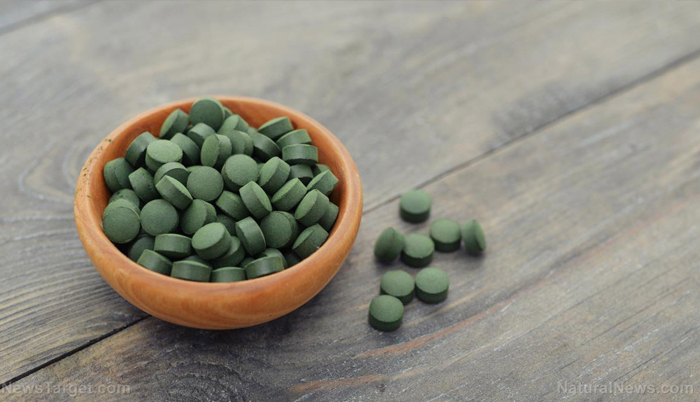![]() Home > Lifestyle
Home > Lifestyle
Ayurvedic Medicine Can Effectively Treat And Manage Diabetes

![]() June 10th, 2018 | 10:33 AM |
June 10th, 2018 | 10:33 AM | ![]() 535 views
535 views
NATURALNEWS
An Indian study using diabetic rats determined that the Ayurvedic medicine Chandraprabha vati (CPV) can treat and manage Type 2 diabetes just as effectively as metformin. CPV was shown to control blood sugar, cholesterol, and triglycerides levels just as well as first-line diabetic medicines.
Diabetes mellitus is indicated by abnormally high blood sugar levels that come from defects in the secretion and/or action of insulin. This condition is called hyperglycemia, and it has a negative effect on many parts of the body.
The ancient Ayurvedic system prescribes CPV treatment for various indications such as prameha, a syndrome that shares symptoms with diabetes mellitus, obesity, and other diseases and disorders. CPV is a herbal medicine available in pill or tablet form.
Researchers from the National Research Institute for Ayurveda-Siddha Human Resource Development sought to evaluate the influence of CPV on blood sugar and fat profiles in alloxan-induced hyperglycemic rats.
They published their findings in the Journal of Ayurveda and Integrative Medicine.
Rat model simulates diabetic and glucose-loaded specimens
The researchers built a model using 55 healthy lab rats. Hyperglycemia was induced in some of the specimens using alloxan monohydrate.
The test subjects were divided into six different groups with five rats assigned to each set. The non-diabetic control group received a placebo while the diabetic vehicle control group received alloxan and CPV.
Rats in the test drug-treated groups received three different amounts of CPV. The ones in the standard treated group got metformin, a first-line drug used to treat diabetes in humans.
All treatments were given on a daily basis for seven days.
The researchers then took blood samples from fasted rats at certain intervals. They tested those samples for fasting blood sugar levels. They also measured blood levels of total cholesterol and triglycerides on the seventh day.
Other non-diabetic rats were loaded with glucose for an oral glucose tolerance test (OGTT) using either CPV treatment or metformin.
CPV matched anti-hyperglycemic effectiveness of metformin
According to the researchers, CPV treatment did not markedly affect the blood sugar levels of healthy rats during the OGTT. The same outcome applied to rats that received standard drug treatment.
When applied to glucose-loaded rats, both CPV and metformin restored the treated animals’ impaired glucose tolerance.
The results of the OGTT suggested the Ayurvedic medicine did not cause hypoglycemia – extremely low blood sugar – in healthy non-diabetic individuals.
With regards to its anti-hyperglycemic potency, CPV treatment lowered blood sugar levels in alloxan-diabetic rats. The exact process by which CPV achieves this is still unclear.
The researchers note that CPV is comprised of ingredients reputed to have anti-diabetic effects such as:
Improving insulin-sensitizing activity
Healing pancreatic beta cells
Antioxidant action
Influencing insulin resistance
Altering the carbohydrate metabolism or insulin-like effect via peripheral glucose utilization
They believe the combination of these anti-diabetic properties gives CPV its effectiveness against hyperglycemia.
In addition, the study showed that CPV also reduced the cholesterol level in the blood of diabetic rats. The researchers trace this to the presence of ingredients that either prevent cholesterol from being created or improves its absorption in the intestines.
Furthermore, CPV also reduced the number of triglycerides in the blood, possibly by improving the efficiency of insulin and lipoprotein lipase. This means CPV has anti-hyperlipidemic effects and can control diabetes and fat abnormalities.
Finally, the researchers compared the effectiveness of CPV and metformin. According to the results, the Ayurvedic medicine matched metformin’s performance in treating diabetes.
The researchers concluded that CPV was a safe and effective alternative to metformin for treatment of hyperglycemia and Type 2 diabetes.
For future investigations, they recommended testing CPV’s effectiveness in treating chronic models of diabetes, such as the ones induced by Streptozotocin-Nicotinamide or fructose.
Source:
courtesy of NATURALNEWS
by Edsel Cook
If you have any stories or news that you would like to share with the global online community, please feel free to share it with us by contacting us directly at [email protected]